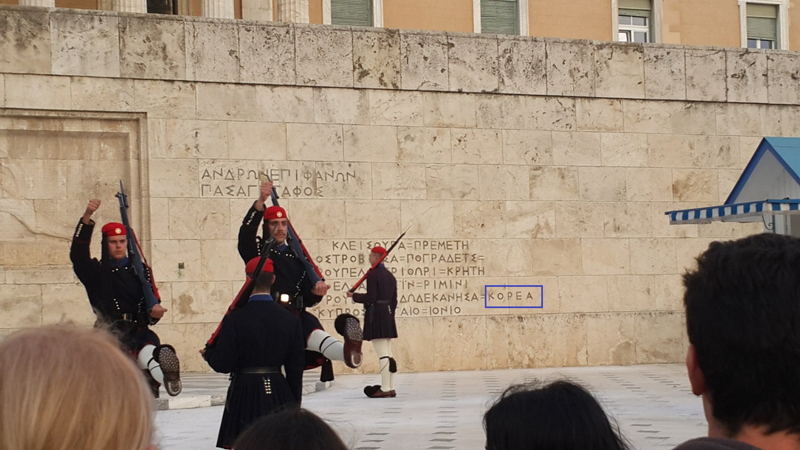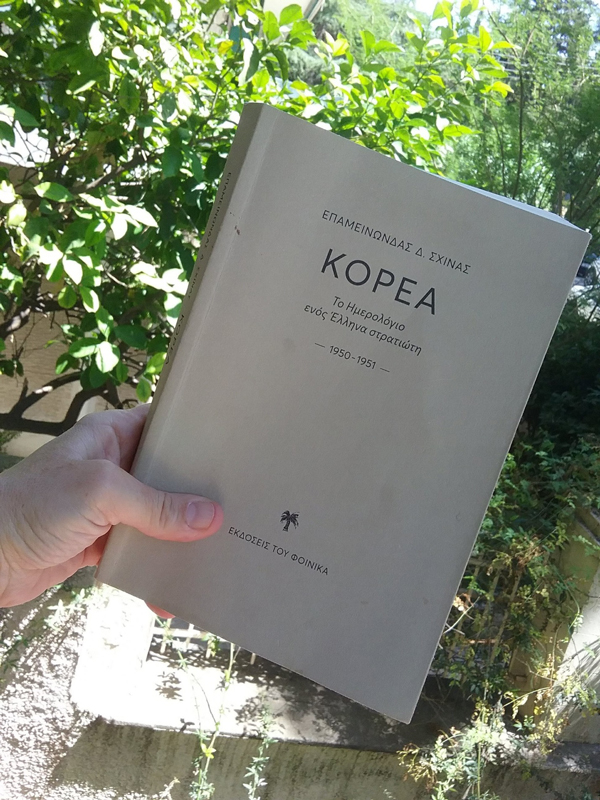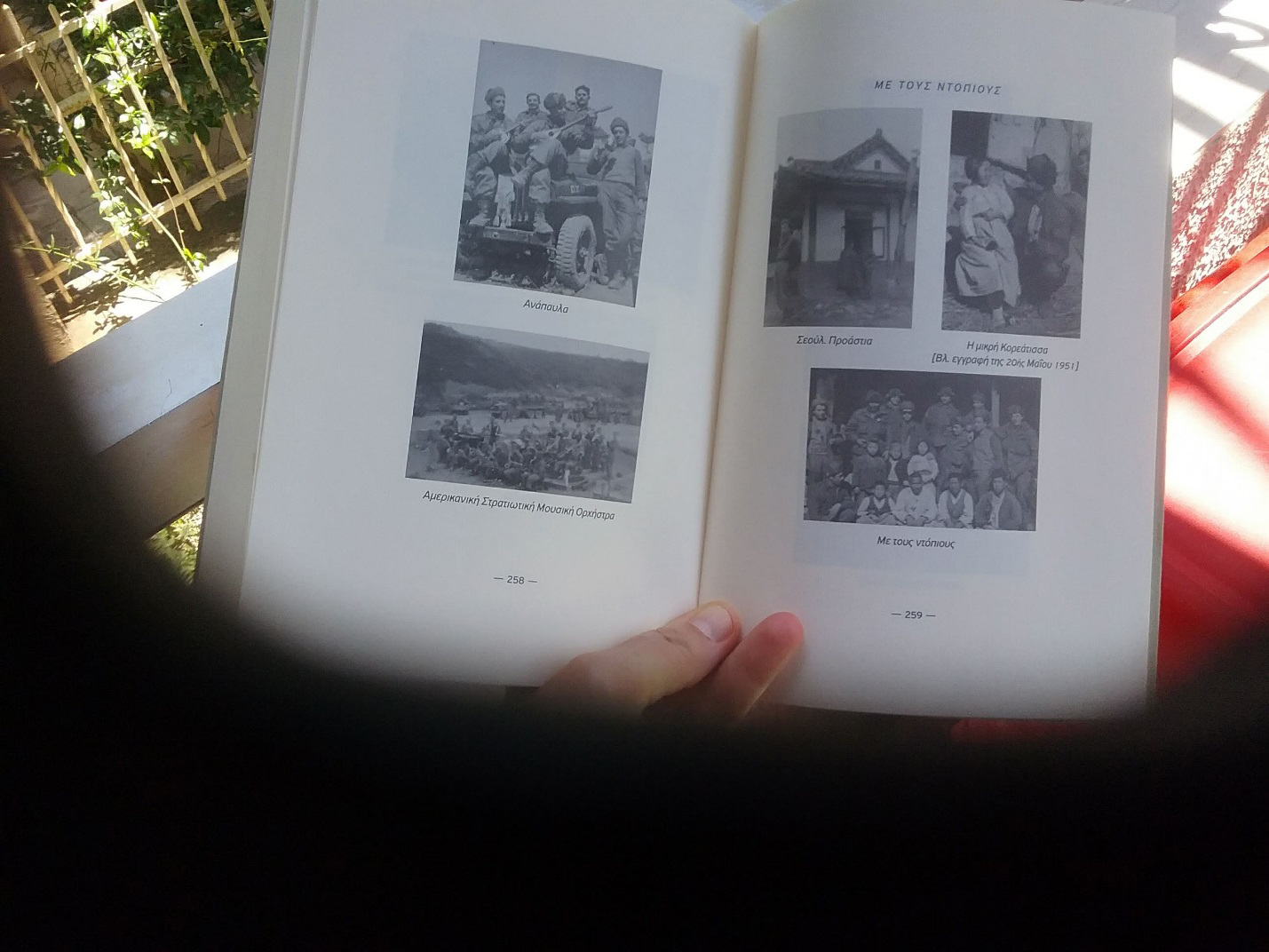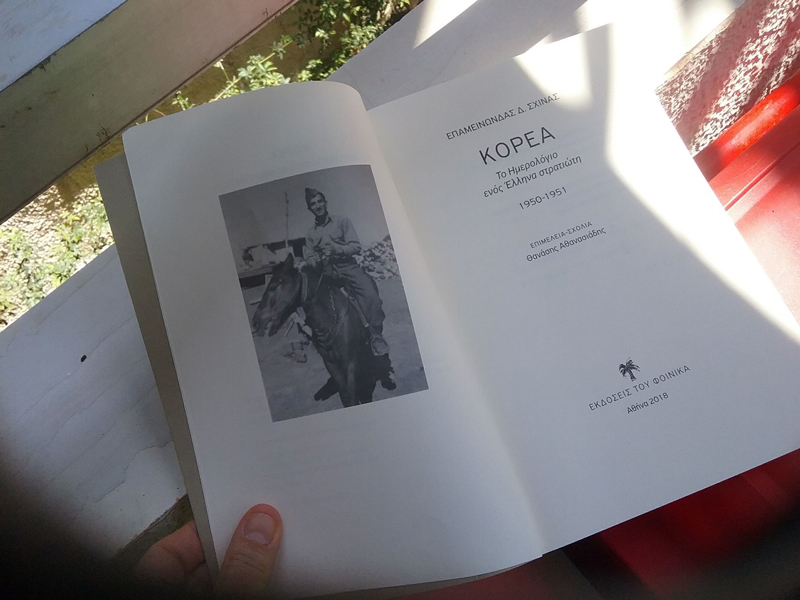By Honorary Reporter Katerina Lygkoni from Greece
Photos= Katerina Lygkoni

Maybe the second most famous spot in Athens, Greece, is the Tomb of the Unknown Soldier, which honors a man known to have fought heroically in Greece and abroad. On the wall of the tomb is inscribed "Korea," as thousands of Greek soldiers and military officers participated in the Korean War.
June 25 marks the 70th anniversary of the outbreak of the Korean War. By coincidence, I found a person who had a diary kept daily by a Greek soldier in the war that was published as a book in 2018. Almost a private publication that remains largely unknown, the book is about the Greek soldier Epaminondas (Nontas) Schoinas.
In a family of ten children, he completed high school under difficult conditions as Greece was under Nazi occupation since 1941. Schoinas had a deep love of the arts, especially music. He learned to play the mandolin, violin, accordion, guitar and other instruments. In his diary, he wrote taking part in or even forming bands with other Greek and American soldiers. He also acted in and wrote small plays to entertain soldiers. And his diary boasts a poetic and philological description of the war scenes he experienced in Korea.



The book was written by Epaminondas (Nontas) Schoinas, who was part of the first batch of Greek soldiers dispatched to the Korean War. Every night for ten months, he kept a diary of his life in Korea.
Schoinas was sent to Korea with the first batch of Greek soldiers and served ten months, between Nov. 15, 1950, and Aug. 15, 1951, a period his diary covers. The soldiers arrived in Busan on Dec. 9, 1950, before moving inland. The Greek forces were first incorporated into the American 7th Calvary Regiment.
The hardest challenge for the Greek soldiers was the freezing Korean winter, with temperatures far lower than in the Mediterranean climate of Greece. Schoinas said the Greek forces suffered their first casualty not because of enemy bullets but the cold. They woke up to see a fellow soldier lying in his bed frozen to death.
Thanks to his work and military experience in Greece, Schoinas was assigned as a transmitter. Playing music during rest times, writing in his diary every night, and receiving and writing letters to his family and friends were what he said helped him survive the war's numerous hardships.
According to his editor Thanasis Athanasiadis, a retired army officer, Schoinas returned to Greece and while serving at the National Telecommunications Organization, he transformed his diary notes into a more elaborate and analytical work of 286 pages. The pages were carefully placed in a box and stayed hidden and forgotten at his house. In February 2017, his wife found the box while clearing out stuff from their home. Thus his daughter and his editor saved the notes from being thrown away and made possible their publication in 2018.
In his short introduction to the book, Schoinas said that after almost 70 years, despite the commotion and calamity of the war and the freezing cold, he found the strength every night before sleeping to record what he had observed and heard from the telephone switchboard and the wireless transmitter. After returning home, he didn't want to talk about the war because of its painful memories of tragic days and snowy nights. The publication of the diary brought back images of the youthful faces of his fellow soldiers who died heroically on the slopes and peaks of the distant Korea. According to official data from the Greek military, 9,586 Greek soldiers and 669 officers served in the Korean War.
In his introduction, his editor mentioned something Schoinas thought wasn't important to record in his diary. On the battlefield one day, he was lightly injured by a piece of artillery shell that remains wedged in his thigh.
Now in his 90s, Schoinas is one of the few Greek veterans of the war still alive. He hasn't visited Korea to see its economic miracle and achievements, but in his diary, he showed high respect for Koreans and compassion for their hardships and constant migrations to safer areas during the war.
Titled "Korea: Diary of a Greek Soldier 1950-51," the Greek-language book has 304 pages and is published by Foinika Publications. It includes many personal photos from the author.
chaey0726@korea.kr
*This article is written by a Korea.net Honorary Reporter. Our group of Honorary Reporters are from all around the world, and they share with Korea.net their love and passion for all things Korean.
Most popular
- Military discharge sets stage for reunion of all 7 BTS members
- Lee Jae-myung officially sworn in as nation's 21st president
- Presidents Lee, Trump discuss tariff deal in first phone talks
- President's 1st executive order is launch of economic task force
- Method found to boost removal of waste products from brain
